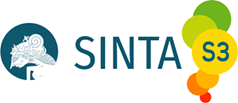Effectiveness of Problem-Based Learning with The Help of Microsoft Teams to Improve Students Learning Outcomes
DOI:
https://doi.org/10.33394/mpm.v13i1.15710Keywords:
Problem-Based Learning, PBL, Microsoft TeamsAbstract
One of the learning models that can implement hybrid learning by the objectives of the curriculum in Indonesia is problem-based learning. Hybrid learning can run well with the help of technology. One of the platforms that can be used in learning is Microsoft Teams. This study aims to examine the effectiveness of problem-based learning with the help of Microsoft Teams. This study used experimental research methods with the research population, namely the set of VII classes at SMP Negeri 53 Surabaya. While the research sample is a set of students from a class taken randomly because the classes in the population are relatively homogeneous. Problem-based learning (PBL) assisted by Microsoft Teams effectively improves learning outcomes. This is indicated by an increase in learning outcomes of at least 70 points, the teacher's ability to manage learning gets a score of at least 3 for each assessment aspect, student activities by the ideal time, and students' positive response to learning at least 81.08% for each assessment aspect.
Downloads
Published
2025-06-30
How to Cite
Mutammam, M. B., & Wulandari, E. N. (2025). Effectiveness of Problem-Based Learning with The Help of Microsoft Teams to Improve Students Learning Outcomes. Media Pendidikan Matematika, 13(1), 260–271. https://doi.org/10.33394/mpm.v13i1.15710
Issue
Section
Articles
Citation Check
License
Authors who publish with this journal agree to the following terms:
- Authors retain copyright and grant the journal right of first publication with the work simultaneously licensed under a Creative Commons Attribution License that allows others to share the work with an acknowledgement of the work's authorship and initial publication in this journal.
- Authors are able to enter into separate, additional contractual arrangements for the non-exclusive distribution of the journal's published version of the work (e.g., post it to an institutional repository or publish it in a book), with an acknowledgement of its initial publication in this journal.
- Authors are permitted and encouraged to post their work online (e.g., in institutional repositories or on their website) prior to and during the submission process, as it can lead to productive exchanges, as well as earlier and greater citation of published work (See The Effect of Open Access).
Â













